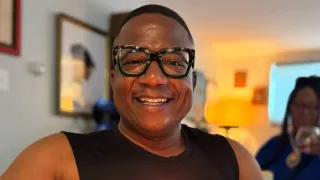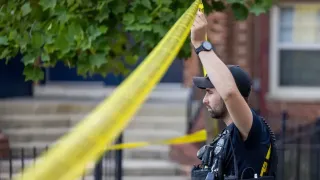
4 hours ago
Tampa Pride Cancels All 2026 Events and Parts Ways With President
READ TIME: 3 MIN.
In a significant development for Florida’s LGBTQ+ community, Tampa Pride announced on September 22, 2025, that it will cancel all Pride events scheduled for 2026, including its widely attended annual Pride Festival and Diversity Parade. The organization also confirmed that it has parted ways with its president, a move described as part of a broader restructuring effort in response to mounting external pressures .
Tampa Pride cited the “political and economic climate” as the primary factors behind its decision to take a one-year hiatus from all scheduled 2026 events. The organization released a statement on social media explaining that the current environment in Florida, shaped by divisive state and national politics, has made it increasingly difficult to safely and effectively plan large-scale LGBTQ+ celebrations .
The statement did not elaborate on specific incidents, but many in the community point to recent legislative developments and a rise in anti-LGBTQ+ rhetoric as contributing factors. Florida has seen the passage of several controversial laws in recent years, including limits on gender-affirming care and restrictions on LGBTQ+-inclusive education, which have heightened concerns about safety and inclusivity at public events .
Alongside the event cancellations, Tampa Pride confirmed that it has dismissed its president. While the organization has not publicly named a successor, it stated that this change is part of an effort to “rebuild and refocus” for future years, with the goal of better serving Tampa’s diverse LGBTQ+ population .
Community leaders have expressed disappointment but also understanding, noting the challenges that LGBTQ+ organizations face in hostile political environments. “It’s a difficult but necessary decision,” said a spokesperson for Equality Florida, an advocacy group. “Ensuring safety and sustainability for Pride events should always come first” .
Tampa Pride’s annual festival and parade have historically drawn thousands of attendees from across Florida and the Southeast, making their cancellation a significant loss for both the local community and the state’s broader LGBTQ+ population. The events have served as a vital platform for visibility, advocacy, and celebration, featuring performances, resource booths, and outreach initiatives for transgender people, queer youth, and other marginalized groups .
Other Pride organizations, including St. Pete Pride, have responded by reaffirming their commitment to continue hosting events. “We are here, we are queer, and we are not going anywhere,” said the leadership of St. Pete Pride in a public statement, offering support and solidarity to Tampa’s LGBTQ+ residents during this period of uncertainty .
The cancellation comes at a time when LGBTQ+ rights have become increasingly politicized in Florida and nationwide. Recent years have seen a surge in anti-LGBTQ+ legislation and rhetoric, with high-profile politicians often targeting trans rights and queer educational programs as campaign issues. Advocates warn that these measures have a chilling effect on community organizing and public celebrations, leading to cancellations and scaled-back events not only in Tampa, but in other cities across the United States .
Organizations such as the Human Rights Campaign and GLAAD have called for renewed vigilance, emphasizing the importance of Pride as both a celebration and a protest. “Pride is about visibility and resistance,” said a spokesperson for GLAAD. “When events are canceled due to fear or financial strain, it’s a sign we must recommit to fighting for equality” .
Despite the cancellation, Tampa Pride has expressed hope for a return in 2027 and has encouraged supporters to stay engaged through digital campaigns and local advocacy. The organization has promised to use the hiatus to reassess its mission, strengthen partnerships, and develop new strategies for inclusive and safe community events in the future .
Local businesses and LGBTQ+ organizations have also pledged to support affected communities, offering alternative programming and resources for those seeking connection and solidarity. Mental health advocates stress that Pride events play a crucial role in supporting LGBTQ+ wellbeing and urge community members to reach out for support during this challenging period .
As the landscape for LGBTQ+ rights and visibility continues to shift, Tampa’s experience underscores both the fragility and resilience of Pride celebrations in the United States. The coming year will test the community’s ability to adapt, organize, and thrive in the face of adversity—while the promise of future Pride events remains a beacon of hope for many.






